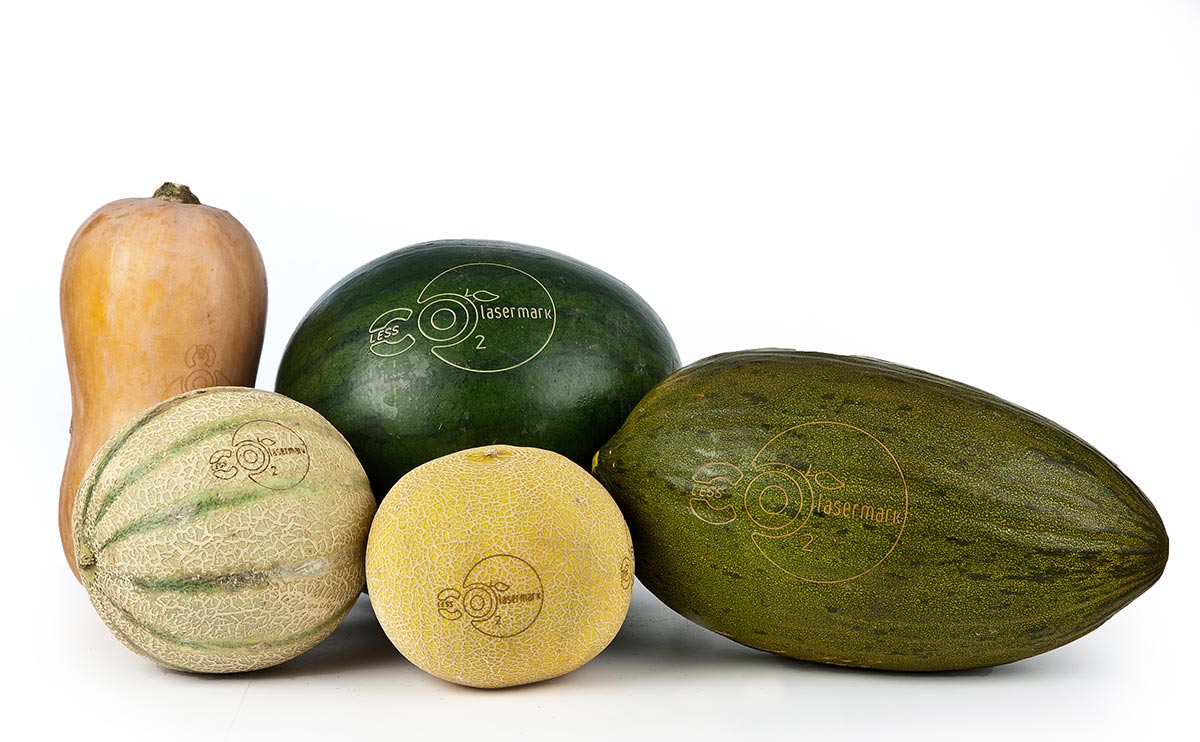
- Inspiring People -
- 2mins -
- 145 views
Could Laser “Tattoos” Replace Sticky Fruit Labels?
Check out this high-tech method to replace sticky labels with ‘natural branding’ that uses laser markings to label organic food.
Why stick a plastic label to food when you can print on it using a laser instead?
The Eco-friendly method of "Natural Branding" excludes the use of stickers that require 100 times more resources including glue, paper, and ink. If this method gets implemented all over the world, the carbon emissions will be reduced significantly with a lot of energy and resources saved. Every person that loves their planet disapproves of plastic packaging, so we can expect this method to become common very soon.
A lot of fresh food comes in its own natural packaging
Fruit, for all its vitamins and minerals and oh-so-delicious sweetness, is also an incredibly clever snack: it comes with its own perfectly fit all-natural packaging. A lot of fresh food comes in its own natural packaging meaning there’s no real need to encase them in plastic. Take produce such as potatoes, apples, oranges, bananas, avocados, and coconuts for example. You’ll still find small plastic stickers attached to these foods advertising brand or variety. That practice could soon be a thing of the past, though, thanks to lasers.
The humble fruit sticker may seem an unlikely cause for environmental concern but removing it from produce could create huge savings in plastic, energy and CO2 emissions. In response to consumer demand for less packaging, Dutch fruit and veg supplier Nature & More and Swedish supermarket ICA have joined forces to run a trial to replace sticky labels on organic avocados and sweet potatoes with a laser mark.
Sources: ModernFarmer, TheGuardian

Millennials expect companies to show “good corporate citizenship,” and will pay more for it
This new laser labelling technique can help reduce plastic waste and, according to experts, can also conserve energy and CO2 emissions. The laser process requires only 1% of the carbon emissions needed to produce a sticker of a similar size. Lasered-on labels are just the sort of innovation that appeals to millennials and other consumers concerned with environmental sustainability. Retailers should seek opportunities to include innovations like these in their stores.
Numerous reports and studies have shown that millennials favour companies that show a demonstrated commitment to sustainability and social improvement, including reducing the waste of a produce sticker. In fact, Forbes reported that as much as 81% of millennials expect companies to show "good corporate citizenship," and are willing to pay more for it in most cases.
Supporting methods that have high impact on the environment without inconveniencing the consumer could help retailers stay ahead of competitors without alienating the average mass-market consumer.
Source: Keith Loria for FoodDive

